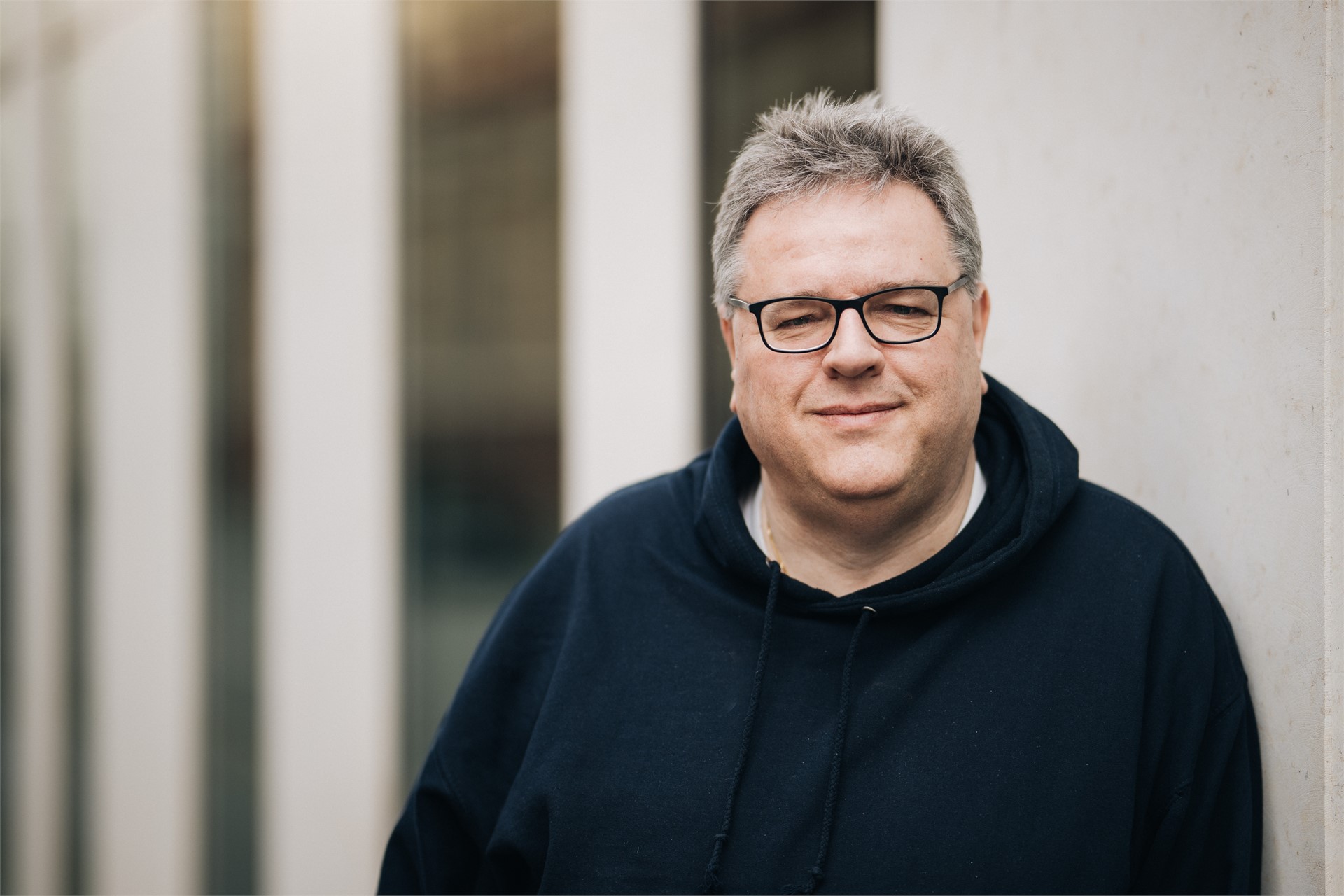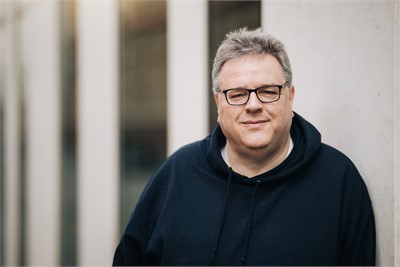Today, as a consultant and speaker, he supports companies in designing unforgettable events. From the pandemic's impact to future trends, Oliver Stoldt provides valuable insights and tips for event organizers and hoteliers.
Hotel Revue Interviews MICE Expert Oliver Stoldt
Covid severely impacted the MICE industry. What are the key lessons learned from the pandemic?
The COVID-19 pandemic acted as a catalyst for digitalization and the adoption of hybrid event formats. Particularly in regions with stricter restrictions compared to Switzerland, hotels and organizers had to quickly upgrade their technology to remain competitive and meet the changing market demands. At the same time, the importance of agility and adaptability became evident. Both organizers and venues were forced to constantly adjust to new challenges and develop creative solutions to maintain a sense of normalcy despite distancing rules.
While technological innovations played a central role during this period, the longing for genuine, in-person connections among clients remained strong. The pandemic also exposed another critical issue: the loss of qualified personnel in the hospitality and MICE industries. Many dedicated hosts and experienced professionals moved to other industries due to social uncertainty. Often, they did not return, as these sectors offered better working hours and higher salaries, especially in Germany and Austria. This development presents new challenges for the industry and requires targeted strategies to restore the appeal of jobs in hospitality.
How has the MICE culture in Switzerland changed post-COVID? What trends do you observe?
Post-pandemic, the MICE culture in Switzerland has undergone significant changes, bringing forth several new trends. A key factor is the demand for flexible venues. Modular event spaces, which can quickly adapt to hybrid or smaller events, are particularly sought after. Simultaneously, there is a growing preference for nature-focused locations. Outdoor events, especially in the Alps or by lakes, offer not only a high level of safety but also inspiration through natural surroundings.
Another significant trend is the increased technological sophistication of venues. Locations with integrated streaming and video conferencing technology have a clear competitive advantage, as they meet the requirements of hybrid formats. Regional events are also gaining importance. Many organizers focus on local or regional gatherings to avoid long travel distances while promoting sustainability.
Additionally, there is a focus on smaller groups, which offer the advantages of exclusivity and personal interaction. This not only meets participants' safety needs but also allows for more individualized event design. Finally, experience-oriented formats are on the rise. Participants increasingly seek interaction, creative elements, and team-building activities that turn the event into a memorable experience.
Will the demand for hybrid and virtual formats persist in the MICE industry post-pandemic?
Post-pandemic, the desire for real, in-person interactions has clearly returned to the forefront. In 2022, meetings in the mountains or by lakes, featuring social elements and immersive team experiences, were particularly popular. By 2024, the demand for purely hybrid events, as was common during the pandemic, has significantly declined. These formats are now primarily used for internal meetings that integrate into companies' daily operations.
At the same time, mixed formats are becoming increasingly important. These solutions combine in-person events with hybrid integrations, where individual participants or speakers join virtually. Such approaches strike a balance between cost efficiency, sustainability, and flexibility, allowing international participants to join without traveling, thus meeting the industry's current demands.
What must the industry address to remain successful in the international MICE market? Revenues of around $1.8 billion are expected by 2030.
To ensure success in the international MICE market, several strategic measures are necessary. Sustainability remains a central factor. Clients and regulatory authorities expect environmentally friendly and transparent concepts. Moreover, the technical equipment of many venues needs to improve. Hybrid events, in particular, require modern technologies like screens, WeFrames, and integrated conference systems, which are often only available in metropolitan areas.
Capacity remains a challenge: rural areas, often preferred for their green, charming locations, frequently lack sufficient hotel beds or suitable conference rooms. Furthermore, the industry must become more flexible, offering competitive prices while maintaining quality.
A key focus is the promotion of skilled professionals. The MICE industry needs dedicated talent in all areas, from technical specialists to multilingual hosts. It is becoming increasingly important to train staff to meet both the technical and cultural demands of the industry. Finally, better use of synergies within the industry can increase efficiency and foster innovation.
What specific advantages does Switzerland offer international MICE clients compared to other countries?
Switzerland offers a range of unique advantages that distinguish it as a MICE destination. Key strengths include cleanliness, safety, perfectionism, an idyllic environment, and exceptional service orientation. Its central location in Europe makes it an optimal hub with short flight times from many European cities. Additionally, Switzerland boasts first-class transportation infrastructure, including international airports such as Zurich, Geneva, and Basel, as well as an efficient and punctual rail system, ensuring stress-free travel.
Safety and stability are further essential advantages. Switzerland's political neutrality ensures stability and reliability, simplifying event planning. High safety standards offer guests and organizers a particular level of security, regardless of event size. The country's multilingualism (German, French, Italian, English) facilitates communication and is another asset for international participants.
Furthermore, Switzerland excels in global connectivity. As an international center for business and diplomacy, with cities like Geneva hosting numerous international organizations, it provides ideal networking opportunities. Combining professionalism with natural beauty, Switzerland creates an unparalleled event experience.
Which technologies (AI) play a role in planning and organizing MICE events today? Can smaller players keep up?
Artificial Intelligence (AI) has become integral to planning and executing MICE events. A key application is the analysis of participant data, which enables personalized event experiences and suggestions for agendas or networking opportunities. Chatbots are increasingly used for invitation management and FAQs, offering an efficient way to automate information flow and quickly address participant inquiries.
AI-powered event platforms are also utilized, especially for standardized events. AI helps locate suitable venues; however, the human factor remains essential when individual elements come into play. Budget planning apps and simultaneous translation via mobile applications further simplify planning processes and enhance participant experiences.
Smaller providers can also benefit from these developments, as many open-source solutions are available, enabling access to advanced tools. These innovations show that AI not only enhances efficiency but also helps make events more personalized and interactive.
How do Augmented Reality (AR), Virtual Reality (VR), and AI change the MICE experience? How important is the “experience” itself?
Technologies like Augmented Reality (AR), Virtual Reality (VR), and Artificial Intelligence (AI) are revolutionizing the MICE experience, putting a stronger focus on engagement. While there is currently little demand for VR or AR in the MICE sector, they offer exciting possibilities. For example, a case in Japan demonstrates how VR is being used as an educational alternative, which could also apply to hybrid meetings in the future.
AR provides innovative approaches: participants can experience additional information in real-time through interactive content like presentations, virtual booths, or 3D models. Venues can be virtually expanded to include branded elements or enable virtual tours. Gamification elements like treasure hunts or live quiz games further increase engagement.
AI also enhances event experiences, for instance, through "Networking 2.0," where algorithms connect participants based on shared interests. Interactive keynotes utilizing AR or VR make presentations more dynamic and engaging.
The “experience” is no longer just a "nice-to-have" but a decisive success factor. AR, VR, and AI enable events to be individualized, intensified, and scaled globally, meeting the expectations of modern participants.
What role does sustainability play? Is it here to stay, or will it become a “nice-to-have” argument?
Sustainability is no longer just a trend - it has become an integral part of the MICE industry. Regulatory developments at both national and international levels make sustainable practices a requirement, not merely an option. Clients increasingly demand transparent, environmentally friendly measures, and sustainability is increasingly viewed as a competitive differentiator in the global MICE market.
Despite challenges - such as higher costs for smaller events or businesses - sustainability's long-term benefits outweigh the drawbacks. It not only provides a competitive advantage but also ensures responsibility and alignment with client and regulatory expectations.
Summary and Outlook
Switzerland continues to position itself as one of the leading MICE destinations worldwide. Its greatest strengths include its central location, excellent transportation links, and modern venues. Safety, political stability, and outstanding service quality create an ideal environment for events of all types. Additionally, Switzerland's breathtaking natural surroundings and focus on sustainability underscore its uniqueness.
However, challenges remain. High costs and limited capacities, particularly for large events, present weaknesses. Simultaneously, trends such as digitalization, increasing demand for sustainable and experience-oriented events, and international collaboration offer tremendous opportunities.
Looking ahead, the industry’s success will rely on innovation and adaptability. Investments in hybrid and technological solutions, strengthening sustainability efforts, and promoting skilled professionals are essential steps. Switzerland has the potential to further solidify its position as a premium MICE destination, meeting both local and international demands.
Contact our MICE Service Group team to plan your next event and benefit from our expertise!


 austria
austria
 switzerland
switzerland

